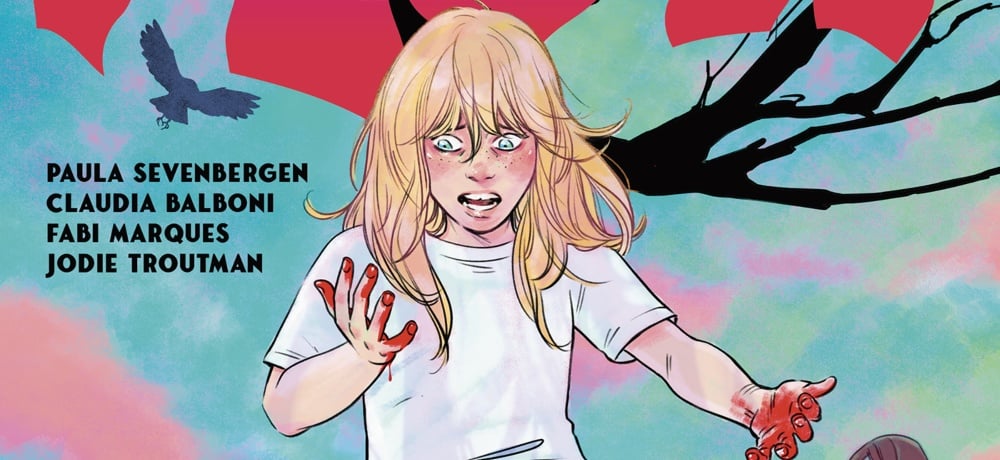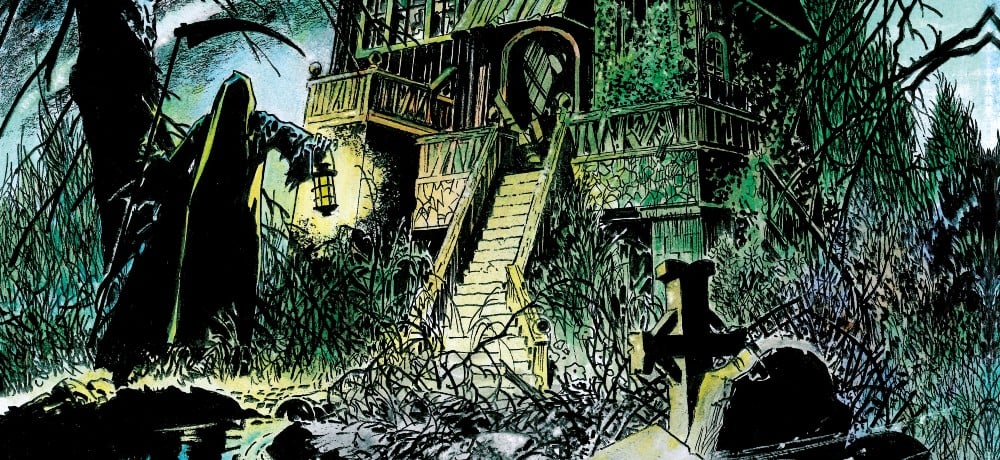





I can still remember going to see James Gunn’s debut feature Slither on opening night in March of 2006. It was to be my birthday movie, so myself and a group of friends all got together at the movie theater, ready to check out what Gunn had in store for us. I was the only one among us with an awareness of his work, having followed his career as a screenwriter during his days at Troma through The Specials, the two live-action Scooby-Doo movies, and, most notably, his 2004 remake of Dawn of the Dead. Because I knew what to expect from a James Gunn movie, naturally I loved Slither. My friends did, too. The rest of the nearly empty theater seemed puzzled and disgusted by it, though, and I knew that night that the movie was going to die a quick death.
I was half right. Yes, Slither disappeared from theaters fairly quickly after bringing in just $12 million at the box office, still a few million shy of recovering its production budget. But as with most great horror movies, time was kind to the film and it began to find its audience as the years went on. These days, it’s beloved among most genre fans, while Gunn has gone on to become one of the biggest and most successful filmmakers in Hollywood thanks to his two Guardians of the Galaxy movies. Funny how things work sometimes.
Truth be told, Slither is the kind of movie only a horror fan can love, and not just because it’s full of references and such a fun mash-up of films for which many of us have a great deal of affection—everything from The Blob to Shivers to Night of the Creeps to Society appears to be an influence (though Gunn has denied having seen Creeps before making Slither), as the movie pivots from alien body horror to killer slugs to a zombie film before all is said and done. And because Gunn still has the anarchist streak in him from his Troma days, Slither is a crazy mix of tones often in the very same scene: there is broad comedy one second, surprising pathos the next, followed by an over-the-top gore gag and sometimes another laugh. Every time you think you’ve got a hold on what the movie is or where it’s going next, Gunn changes direction on you. It’s a choice that might alienate casual movie watchers, but which only endears Slither more to us horror fans. It’s what makes the movie special.
And special it is. While he has retained many of his sensibilities for his work with Marvel Studios (where he has refined them to make them more accessible), there’s something glorious about the unfiltered Gunn we get in his early movies like Slither and Super. While some of Slither’s CG special effects don’t hold up especially well under HD scrutiny—more than likely a function of the movie’s comparatively low budget—there’s enough incredible practical effects work and prosthetics on display to allow us to overlook any digital disappointment. The amount of goop applied to Michael Rooker’s ill-fated Grant Grant alone is horror movie heaven, but even that gets bigger and weirder as the movie progresses, until it finally goes full-on shunt by the end.
Nathan Fillion is a great leading man, mixing machismo and self-effacing incompetence to undermine the traditional hero archetype at every turn. Elizabeth Banks, an actor who has always displayed a taste for offbeat material, clearly has fun as town beauty Starla Grant. One of the really fun things about Slither is watching Gunn build his repertory company, who would continue to appear in most if not all of his work; in addition to the aforementioned Rooker (about whom enough good things cannot be said in this movie), there’s the hilarious turn by Gregg Henry as Mayor MacReady, a cameo by Troma founder Lloyd Kaufman, and the requisite voice cameo by Rob Zombie. This is where the pieces started coming together.
For years one of the most highly requested horror titles on Blu-ray, Slither finally makes its way to the format courtesy of Scream Factory in a Collector’s Edition with several new special features and the full cooperation of writer/director Gunn. Like with a number of the titles licensed from Universal, the 1.85:1 1080p transfer appears to have been taken from an existing HD master (and probably was, as the movie was among the limited number of titles that made its way to HD-DVD before the format died out); it looks good, but not great.
All of the supplements from the previous special edition DVD have been ported over: the James Gunn/Nathan Fillion commentary, the collection of deleted scenes (with optional commentary from Gunn), an amusing gag reel, a behind-the-scenes featurette, a set tour hosted by Fillion, some video footage captured by Kaufman during his day on set, three featurettes on the special effects, and the original trailer. New to Scream Factory’s edition are an all-new interview with co-star Gregg Henry, a new interview with Gunn, and, best of all, a newly recorded commentary with Gunn, Fillion, and Rooker. It’s a total blast hearing these three reunite and talk about the movie with a decade of distance and perspective, especially as the film has found its audience in the interim and all three of their careers have more or less exploded. It’s a really fun conversation, never more so than when Gunn gives Michael Rooker a hard time. He kids because he loves.
Because of where theatrical horror was in the early 2000s—caught up in remakes, J-horror and the more brutal and grim films like Saw and Hostel—Slither got lost in the shuffle. Seeing it rediscovered over the last ten years to the point where it’s now an excellent Scream Factory special edition has been very rewarding. The movie has always been great. If James Gunn had to go make a couple of superhero movies that grossed a combined billion dollars just so audiences would catch up to Slither, we’re all better for it.
Movie Score: 4/5, Disc Score: 4/5